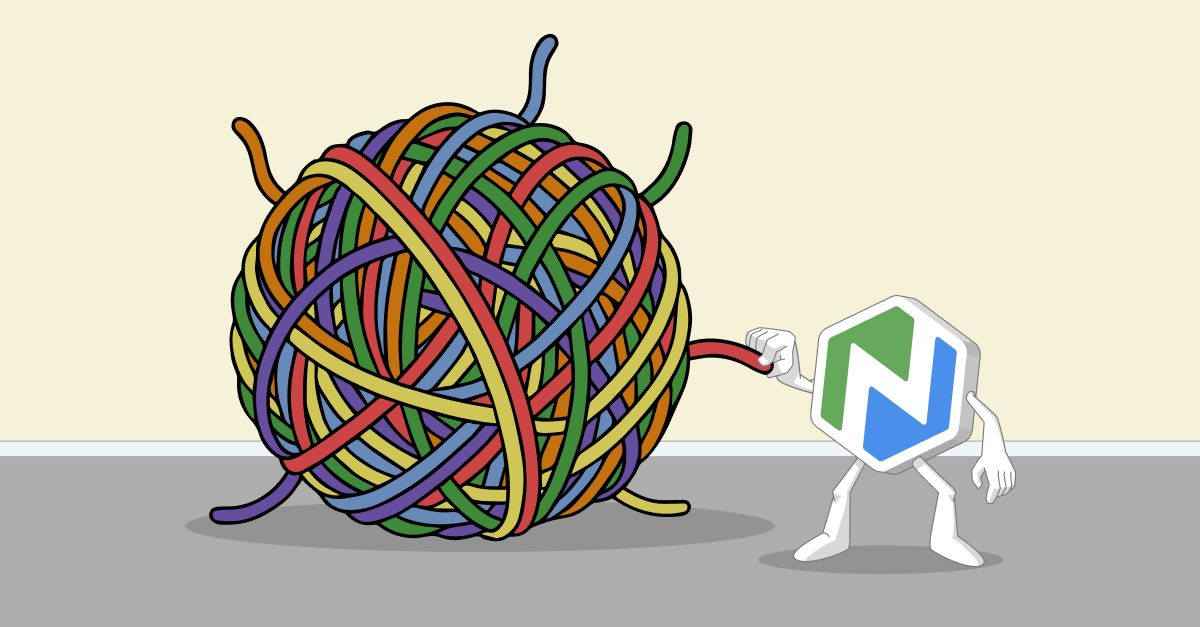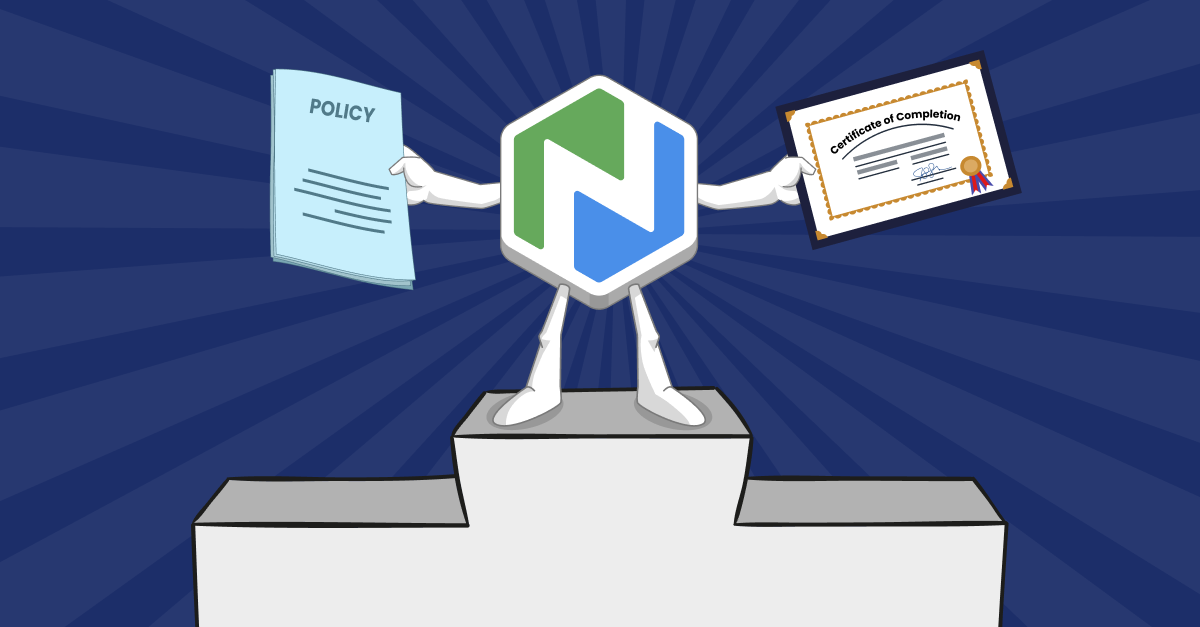6 Nonprofit Challenges (and Training Solutions)
Nonprofit work can be tough, but training can lighten the load—creating ripple effects that strengthen staff, volunteers, and community ties.

Running a nonprofit has never been simple, but lately it can feel like a big tangled knot of problems, all tugging on each other. Staffing shortages contribute to burnout. Burnout weakens community engagement. Financial pressures delay technology upgrades. And volunteer shortages add strain. Each problem thread is connected—and pulling on one impacts others.
The good news is that training can help you untangle the knot. It’s not the solution to everything—training won’t rewrite funding policies or double your donor base overnight. But it will give your team tools, confidence, and the ability to handle the challenges in front of them. And when you strengthen one area through training, the ripple effects ease pressure elsewhere.
Let’s look at six common nonprofit challenges, how they connect, and where training can make a meaningful difference.
1. Staffing Shortages & Talent Retention
When positions stay open, the people who remain end up working more. And it doesn’t take long for the heavier workload to wear people down. Training can’t raise salaries or create new positions, but it can make things feel more doable and show staff they are valued.
Training that helps:
- Skill paths: Offer short lessons that help staff build new skills and move into different roles.
- Cross-training: Collect simple how-to videos from staff in different roles so knowledge doesn’t disappear when someone leaves.
- Manager check-ins: Teach leaders how to ask a few good questions so everyone feels heard and supported.
Ripple effects: Retention improves, burnout eases, and you save costs on constant rehiring. Cross-trained staff also support volunteers more effectively, improving community engagement.
How we can help: Record a 5-minute “day in the life” video and upload it as a quick tutorial in Niche Academy. Every new staff member or volunteer can access it right away, without needing a manager to walk them through.
2. Burnout & Employee Wellbeing
Burnout isn’t just being tired—it’s losing the energy and optimism to keep going. Training can’t take work off people’s plates, but it can give them tools to manage stress and help leaders share the weight more fairly.
Training that helps:
- Workload check-ins: Teach team leads to do short weekly check-ins to spot when someone is overloaded.
- Wellbeing: Provide workshops to help staff manage stress and learn ways to relax.
- Communication skills: Teach staff how to have open, respectful conversations so concerns are raised early and misunderstandings don’t build into stress.
Ripple effects: Lower stress leads to fewer sick days and improved staff retention. Teams that feel supported have more energy to guide volunteers and connect with the community. It also improves donor interactions.
How we can help: Create a short survey or check-in module in Niche Academy where staff can quickly rate their workload each week. Leaders can review the responses and adjust workloads before burnout builds.
NOTE: With a free trial, you can explore our tutorials such as: Effective Employee Surveys for Managers two-part series: Planning and Writing, Promoting and Analyzing, and Best Manager Practices—Fairness in Responsibility.
3. Financial Strain & Funding Challenges
Fewer donors and rising costs stretch every dollar. Training can’t change the economy, but it can help staff make the most of the opportunities they do have.
Training that helps:
- Storytelling basics: Show staff and volunteers how to share short, real impact stories that connect with donors.
- Grant writing 101: Train people to spot funding opportunities and put together proposals.
- Partnership skills: Teach staff how to reach out to other organizations to share resources or apply for joint funding. (Note: while the linked webinar was originally aimed at libraries, much of the information applies to nonprofits.)
Ripple effects: Stronger fundraising reduces financial strain and gives leaders more flexibility in budgeting. It also eases burnout by reducing constant financial stress and freeing up funds to invest in technology.
How we can help: Ask staff and volunteers to record short impact stories on their phone, then upload them into a “Story Bank” tutorial in Niche Academy. Everyone can practice storytelling by watching and learning from each other.
NOTE: We have some webinars to help you create engaging videos, including: Create Engaging Training Videos with your Smartphone and Going Beyond Captions: Creating Accessible Instructional Videos. Be sure to check out our library of webinars!
4. Technology Adaptation & Digital Skills
Outdated systems waste time and frustrate staff. The real problem isn’t always the tools themselves; it’s that people don’t feel confident using them.
Training that helps:
- Tech champions: Identify team members who would be interested in becoming a go-to helper for new tools and technologies.
- Quick tutorials: Create short modules covering the most important everyday tasks.
- Digital onboarding: Provide step-by-step guides that help non-technical staff get comfortable with new software.
Ripple effects: Confident staff spend less time struggling with systems, lowering burnout. Better data and communication improve fundraising, and younger volunteers are more likely to stay engaged when processes are up-to-date.
How we can help: Upload your 2-minute screen-recording to Niche Academy as a mini-tutorial. New staff can revisit it anytime, and you can build a full library of quick “how-tos” without extra effort.
5. Volunteer Recruitment & Engagement
Volunteer numbers have shifted, and that puts more strain on staff. Training can make your organization more attractive to volunteers—and make the experience easier, more rewarding, and worth coming back to.
Training that helps:
- Fast onboarding: Create one short module to help new volunteers get started right away.
- Skill-building badges: Offer simple badges or certificates that volunteers can add to their resume or LinkedIn profile.
- Knowledge sharing: Ask long-term volunteers to record short tips for newcomers so wisdom doesn’t get lost.
Ripple effects: Prepared volunteers ease the load on staff, lowering burnout. Skill-building keeps younger volunteers interested, and knowledge capture reduces retraining costs (financial strain) while improving community engagement.
How we can help: Turn your one-page checklist into a short volunteer onboarding tutorial in Niche Academy. Add a quick quiz at the end to ensure volunteers are ready before they arrive.
NOTE: With a free trial, you can explore our tutorials, like: How to Write a Professional Email and Telephone Skills: Part 1 – Taking and Making Calls.
6. Community Engagement & Support
For some nonprofits, engagement means filling seats at events. For others, it’s building trust with clients. However it looks, engagement is the heartbeat of nonprofit work—and training can make it stronger.
Training that helps:
- Inclusive outreach: Give staff and volunteers simple scripts for inviting people, welcoming them, and following up.
- Ambassadors: Train a few volunteers to tell your mission story in their own words.
- Digital outreach: Show staff how to use email or social media tools to connect with people beyond in-person events.
Ripple effects: Stronger engagement brings in more volunteers, inspires more reliable donor support, and lifts morale, which helps with burnout. For arts and culture groups, more attendance may boost finances. For human services, deeper trust builds community resilience.
How we can help: Create a simple “Community Outreach Tips” tutorial in Niche Academy with sample scripts for invitations, thank-yous, and follow-ups. Staff and volunteers can practice and feel more confident before reaching out.
NOTE: The Niche Academy platform can also be used to create public-facing programs. This allows you to create and deliver content to your community as well as track metrics.
How to Start Training
While it’s useful to talk about these challenges separately, it’s important to view them holistically and consider where training is needed most. While you can’t control the larger forces impacting your organization, you can strengthen your team’s resilience and adaptability and use training to preserve institutional knowledge, lighten workloads, reduce the impact of turnover, and build skills for connecting authentically with your community. In other words, training doesn’t eliminate the challenges—it makes them more manageable.
Think of it like pulling one thread from a knot. You don’t have to fix everything at once. Pick one area where the pressure feels heaviest, try a few training ideas, and see what happens. Often, the progress in one area starts to untangle the knot in other areas.
At Niche Academy, we make training simple. You can use our ready-made tutorials or build your own. Start a free trial today and see how training can help untangle your specific knot of problems.
.png)
.png)
.png)
.png)

.png)
.png)
.png)

.png)
.png)
